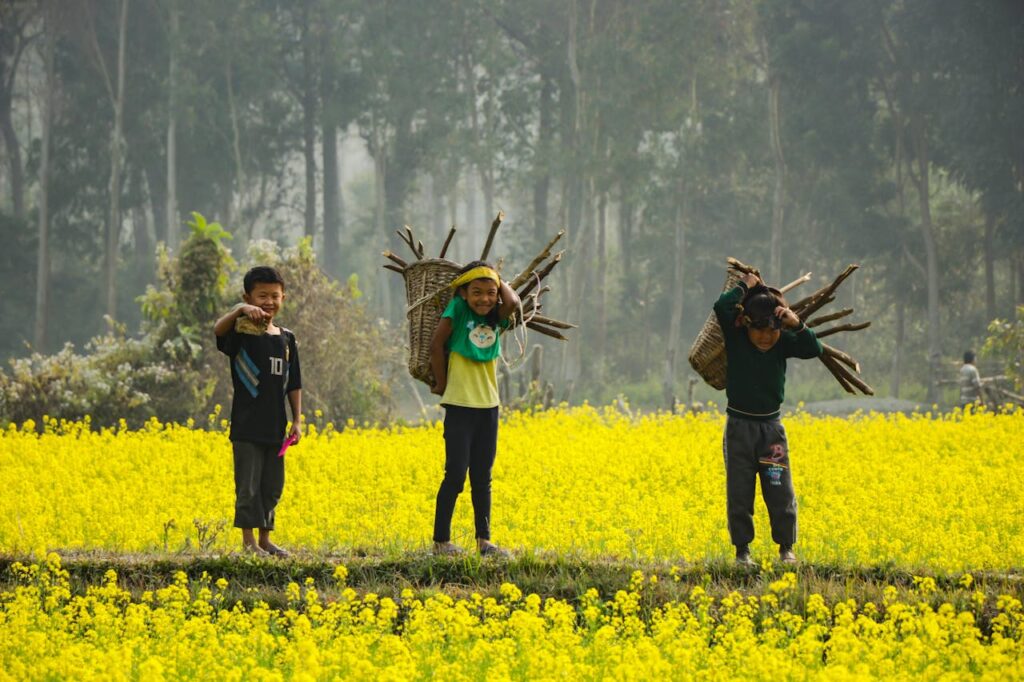Rural development through agriculture is pivotal for India’s socio-economic progress, considering the significant role agriculture plays in rural livelihoods, food security, and economic growth. This article explores the importance, strategies, challenges, and future prospects of rural development through agriculture, focusing on empowering Indian farmers and fostering sustainable rural prosperity.

Importance of Rural Development through Agriculture
Agriculture remains the backbone of India’s rural economy for several reasons:
Livelihood Security: Agriculture provides employment and sustenance to a large proportion of India’s rural population, contributing to their income and livelihood security.
Food Security: The agricultural sector produces food grains, fruits, vegetables, and livestock products essential for domestic consumption, ensuring food security for the population.
Rural Economy Growth: Agricultural activities stimulate economic growth in rural areas through farm incomes, agro-industries, rural markets, and infrastructure development.
Poverty Alleviation: Effective agricultural development strategies can lift rural communities out of poverty by increasing farm productivity, incomes, and standard of living.

Strategies for Rural Development through Agriculture
Enhancing Productivity: Promoting improved agricultural practices, access to high-yielding crop varieties, quality seeds, fertilizers, and mechanization to increase farm productivity and yields.
Infrastructure Development: Investing in rural infrastructure such as irrigation systems, roads, market yards, storage facilities, and electrification to support agricultural activities and enhance market access.
Skill Development: Providing training, capacity building, and extension services to farmers on modern farming techniques, sustainable practices, crop diversification, and value-added activities.
Financial Inclusion: Ensuring access to credit, insurance, and financial services for farmers to invest in agricultural inputs, equipment, and mitigate risks associated with crop failure and natural disasters.

Challenges in Rural Development through Agriculture
Small Landholdings: Fragmentation of land holdings leading to suboptimal farm sizes, low productivity, and limited economies of scale in agriculture.
Technological Divide: Uneven adoption of modern agricultural technologies, mechanization, and irrigation facilities across regions, hindering overall agricultural productivity.
Climate Change: Increasing vulnerability to climate variability, droughts, floods, and erratic rainfall patterns affecting agricultural production, water availability, and rural livelihoods.
Market Access: Limited access to markets, price fluctuations, middlemen exploitation, and inadequate market infrastructure impacting farmers’ income and market linkages.

Government Initiatives and Policies
Pradhan Mantri Krishi Sinchayee Yojana (PMKSY): Aims to expand irrigation coverage, improve water use efficiency, and promote sustainable water management practices in agriculture.
National Rural Employment Guarantee Act (NREGA): Provides rural employment opportunities, enhances rural incomes, and supports agricultural development through public works programs.
Rashtriya Krishi Vikas Yojana (RKVY): Supports agricultural growth and development through state-specific plans, promoting crop diversification, agro-processing, and market infrastructure.
MGNREGA Convergence with Agriculture: Integrates NREGA with agricultural activities, watershed development, and natural resource management to enhance rural productivity and livelihoods.

Future Prospects and Conclusion
The future of rural development through agriculture in India lies in sustainable practices, technological innovations, and inclusive growth strategies that prioritize farmer welfare, environmental stewardship, and rural prosperity. By addressing infrastructure gaps, promoting climate-resilient agriculture, enhancing market access, and empowering rural communities, India can achieve inclusive growth, reduce poverty, and ensure sustainable development goals.
In conclusion, rural development through agriculture is crucial for India’s overall economic growth, social well-being, and environmental sustainability. By leveraging agricultural potential, promoting rural entrepreneurship, and fostering a conducive policy environment, India can transform its rural landscapes into vibrant hubs of opportunity, prosperity, and resilience.